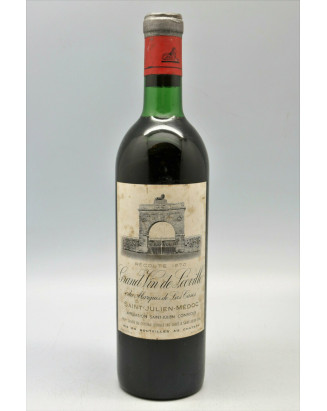



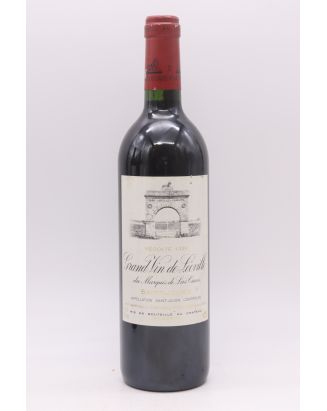
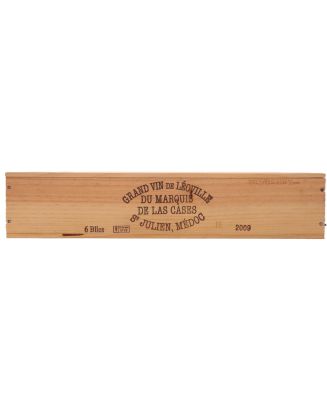
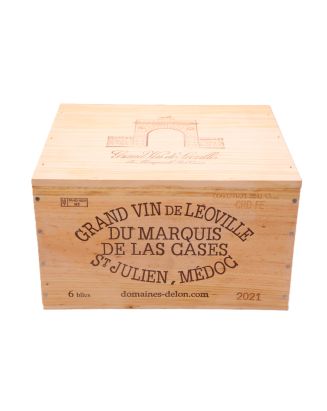
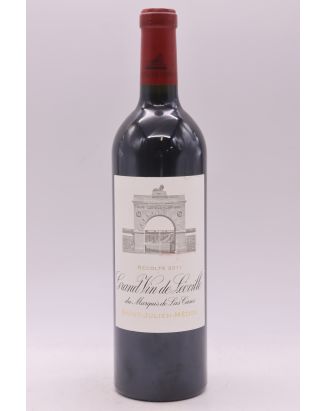


Château Léoville Las Cases has its roots in the viticultural history of the Médoc since the 17th century. Originally, the property was part of a vast estate known as Mont-Moytié, belonging to Jean de Moytié, an influential member of the Bordeaux Parliament. Over the centuries, this estate changed hands to become one of the largest properties in the region. In the mid-18th century, Blaise Antoine Alexandre de Gascq, Lord of Léoville, undertook to develop the estate and elevate the quality of its wines, propelling the estate to the forefront of the Bordeaux scene.
During the French Revolution, as with many other properties, the Léoville estate was divided. Thus, one part became Château Léoville Barton and another, Château Léoville Poyferré. However, the heart of the estate went to Pierre-Jean de Las Cases, Marquis de Las Cases, thus giving birth to the prestigious Château Léoville Las Cases we know today. Since the end of the 19th century, the property has belonged to the Delon family, who continue to manage it with a constant concern for quality and excellence.
Château Léoville Las Cases has been praised by Robert Parker with 99/100 for the 2016 and 2018 vintages, while the 1986, 2000, 1996, 2005, 2010 and 2019 have been awarded a solid 98/100. These scores highlight the elegance and power of this vintage.
The terroir of Château Léoville Las Cases is one of the most remarkable in the Saint-Julien appellation. The estate extends over approximately 97 hectares of vines on the left bank, including the famous "Grand Clos", a 55-hectare enclosure surrounded by a stone wall. This terroir benefits from an ideal position, adjoining Château Latour in Pauillac and bordering the Gironde. This proximity to the estuary gives the vineyard a unique microclimate that favours early ripening of the grapes while protecting the vines from frost.
The soils, of great complexity, are mainly composed of Quaternary gravel, with sandy, clay, and gravel-sandy subsoils. The geological diversity of the estate allows for perfect drainage, offering the vines optimal and regular water supply, without excess. This soil composition is ideal for the flourishing of noble grape varieties such as Cabernet Sauvignon, Merlot, and Cabernet Franc, which make up the estate's grape varieties.
The average age of the vines in the Grand Clos is 52 years, and their planting density reaches 8,600 vines per hectare, ensuring optimal concentration of aromas in each berry.
Vinification at Château Léoville Las Cases remains deeply rooted in Bordeaux tradition, while integrating the most modern technological advances. Each plot of the estate is vinified separately to preserve the singularity of the different terroirs. The fermentation process takes place in a combination of wooden, stainless steel, and concrete vats of varying sizes, all equipped with temperature control systems for perfectly controlled fermentation.
The château has oak vats specially reserved for the vinification of its Grand Vin. After malolactic fermentation, which also takes place in vats, blending occurs, allowing the teams to test the wine before barrel ageing. The wines of Château Léoville Las Cases are then aged for 18 to 20 months in new French oak barrels (about 90% new wood), which gives them fine tannins and a structure suitable for ageing.
Château Léoville Las Cases has always been at the forefront of oenological techniques. As early as 1987, it was one of the first estates to use a reverse osmosis machine to concentrate the musts and improve the quality of the wine. This technique is now used in particular vintages to enhance the depth and aromatic intensity of the wines.
Château Léoville Las Cases offers three main cuvées, each embodying the soul and terroir of the estate.
Le Grand Vin de Léoville Las Cases
Produced mainly from old vines in the Grand Clos, this wine is composed of 70% Cabernet Sauvignon, 21% Merlot, and 9% Cabernet Franc. It is one of the most sought-after wines in Bordeaux, renowned for its depth, elegance, and exceptional ageing capacity. It is distinguished by its intense blue-black colour, even in more modest vintages. On the palate, it offers a defined tannic structure, complex aromas of black fruits, graphite, and cedar, and remarkable length.
Le Petit Lion du Marquis de Las Cases
Created in 2007, Le Petit Lion du Marquis de Las Cases is the estate's second wine. Made from young vines, it contains a higher proportion of Merlot than the Grand Vin, making it more accessible in its youth. Although more affordable, it nevertheless retains the estate's signature with a beautiful structure and aromas of fresh and ripe fruits. It is an ideal wine for more immediate consumption, while offering undeniable elegance.
Clos du Marquis
Long mistakenly considered the estate's second wine, Clos du Marquis is actually a cuvée in its own right. Produced from distinct plots of the estate, located west of the Grand Clos, it embodies the character specific to the Saint-Julien appellation. Its grape composition is slightly different from that of the Grand Vin, with a higher proportion of Cabernet Sauvignon, offering a more straightforward and structured wine. It is recognised for its beautiful longevity and rich aromas of black fruits, tobacco, and leather.
Saint-Julien, a flagship appellation of the Médoc in Bordeaux, is renowned for its red wines of great finesse and longevity. Certain vintages particularly stand out for their exceptional quality, offering powerful, elegant and complex wines. Among the finest vintages, one finds years such as 1975, 1982, 1985, 1986, 1989 and 1990, which are true benchmarks for connoisseurs of age-worthy wines. More recent years have not been left behind, with notable vintages such as 1995, 1996, 2000, 2003, 2005, 2008, 2009, 2010, and 2012, all praised for their balance and ageing potential. The years 2014, 2015, 2016, 2017, 2018, 2019 and 2020 also distinguish themselves through their richness and complexity, continuing to make Saint-Julien an essential reference in the world of wine.
The Second Growths of 1855 constitute a prestigious category, grouping together iconic estates that often rival the First Growths in quality. Among them, discover Château Brane-Cantenac and Château Durfort-Vivens, both located in Margaux, as well as Château Lascombes, Château Rauzan-Ségla, and Château Rauzan-Gassies. In Saint-Julien, wine enthusiasts will appreciate the wines from Château Ducru-Beaucaillou, Château Léoville Las Cases, Château Gruaud Larose, and the famous Château Léoville Poyferré and Château Léoville Barton. Don't miss Château Cos d'Estournel and Château Montrose in Saint-Estèphe, as well as the essential Château Pichon Longueville Baron and Château Pichon Longueville Comtesse de Lalande in Pauillac.
Château Léoville Las Cases embodies the excellence of great Bordeaux wines, with an unparalleled historical and viticultural heritage. The consistency in the quality of its wines, vintage after vintage, and the attention paid to every detail in the vineyards and in the cellar make it an essential reference in the Saint-Julien appellation. Whether with its Grand Vin, a true jewel of the Médoc, its second wine Le Petit Lion or the Clos du Marquis, each cuvée reflects the exceptional terroir and passion of the estate's teams. Buying a wine from Château Léoville Las Cases is investing in a piece of history, a unique tasting experience, and a wine of rare elegance, capable of gracefully crossing decades.